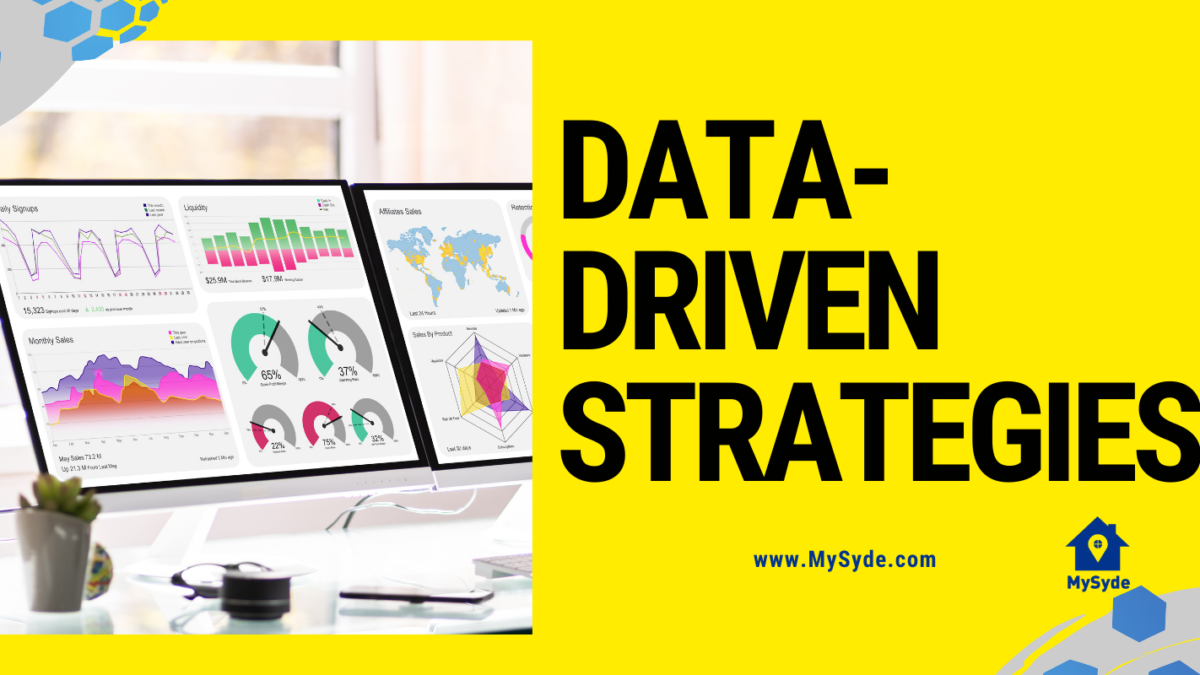
Embracing Sustainability: Elevating Your Business Model for Environmental Impact
April 23, 2024
Embracing Spring: How Community-Centric Strategies Can Boost Your Business
May 22, 2024Data-Driven Strategies: The Key to Maximizing Business Success
Understanding data-driven strategies in shaping your business and marketing is fundamental for any organization aiming to maintain a competitive edge. The reliance on intuition is replaced by a preference for actionable insights derived from data and metrics, marking a significant shift in how decisions are made.

Harnessing Customer Insights for Targeted Marketing
Unveiling Customer Behavior Through Data Analysis
The analysis of consumer data unveils patterns, preferences, and trends, enabling businesses to craft marketing strategies that resonate with their target audience. Insights from website analytics, for example, can inform content optimization, enhance user experience, and tailor marketing efforts to meet customer needs effectively.
Precision in Measuring Marketing Effectiveness
Data-driven marketing offers the advantage of accurately assessing the impact of campaigns. Key performance indicators like conversion rates, click-through rates, and customer acquisition costs provide a clear picture of success and areas needing improvement, ensuring judicious use of marketing budgets.
Broadening the Scope: Data-Driven Decisions Across the Business
Strategic Product and Market Insights
Beyond marketing, data analysis plays a vital role in broader business decision-making. Insights into sales trends and market demand can inform product development, pricing strategies, and supply chain adjustments, allowing for more informed strategic decisions.
Enhancing Operational Efficiency with Internal Metrics
Operational data, such as employee productivity and inventory turnover, offers valuable insights for improving business efficiency. Identifying and addressing process bottlenecks based on data can lead to significant cost savings and operational improvements.
Implementing a Data-Driven Framework
Investing in Advanced Analytics Tools
For effective data analysis, investing in sophisticated analytics tools and platforms is essential. These tools simplify data collection and organization and also facilitate the extraction of actionable insights. Advanced analytics and AI technologies also play a crucial role in future developments.
The Importance of Skilled Data Analysts
While data provides the foundation for informed decision-making, the expertise of skilled analysts is crucial in interpreting this data and translating it into actionable strategies. Ongoing training and talent development are imperative to cultivate the necessary analytical skills within the team.
In the era of data dominance, the shift from intuition-based to data-driven decision-making underscores the importance of leveraging data. By embracing a data-centric approach, organizations can achieve targeted customer engagement, optimize marketing spending, and enhance overall business efficiency. In turn, position themselves for long-term success in the dynamic business landscape.





